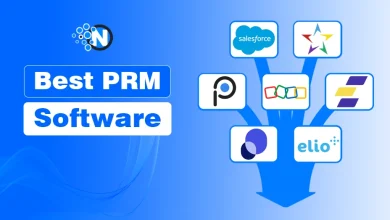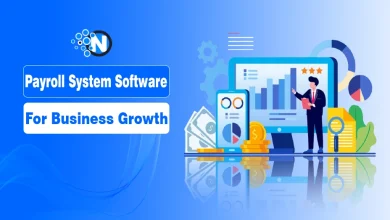How To Choose The Right Business Software For Your Company

No matter what kind of business you have or how big it is, if you want to switch from a brick-and-mortar system to cutting-edge business software, you need to put a lot of time and study into this important task. You have to do a lot of research to find a good, affordable software option for your business. Choosing software for your business is not easy or quick.
Recently, I was looking for an SEO tool for keyword research, and I selected Ahrefs after thorough research. So, I decided to create a business software selection guide for beginners based on my personal experience and research.
In this article, I will explain how to choose the right business software for your company that can help your business grow and stand out.
Let’s start!
Why Use a Business Software System?
Using business software can change how your company works by streamlining processes, increasing output, and helping you make smart decisions. It automates tedious tasks, reducing the likelihood of errors and manual data entry. This enables your team to focus on more important projects while consolidating various tasks into a single platform, including sales, inventory, customer relationship management, and project management.
With centralized, real-time access to important data, making decisions is faster and more accurate. This helps all departments stay on the same page by making communication and teamwork better.

How To Choose The Right Business Software? Top Considerations
There are a lot of things to consider when choosing the right business software. The most important are given below in detail:
Verdict Title.
– Identify the Needs and Goals of Your Business
– Understanding Software Provider Types
– How Much You Are Ready to Spend
– Shortlist Software Solutions
– Try the Demo
– Implement one Software For the Whole Team
– Negotiate for Better Rates
– Seeking Support and Training Resources

Identify the Needs and Goals of Your Business
Sit down and think about why you need to invest in a business software solution and what it should do for your business. If you are about to replace the software you are currently using, evaluate what was missing in the current software and what you need in the new software to run business operations effectively. Make a list of requirements and features that are essential for your business operations.
The next step is to analyze current processes and register their problems to set goals for new business software. Besides, these targets need to be in accord with your corporate goals and mission.
For instance, when you want to increase customer satisfaction levels, you might consider getting CRM software that facilitates the prompt resolution of customer complaints and issues. As we have already discussed project management efficiency improvement, investing in project management software comes in handy.
Understanding Software Provider Types
When you are looking for a software solution for your business, make sure to understand the software provider types and features/functions of the software they are offering. For instance, if you are looking for CRM software, some vendors sell the tool and others sell a solution for all your needs.
Go to the website and check the features offered by them. Or if you are looking for SEO tool, you can refer to the relevant companies to structure a custom platform catering to your business needs.
How Much You Are Ready to Spend
Think about how much you are ready to spend on business software. Business programs and systems come with several additional costs like installation, after-sale support/service, future upgrades, periodical maintenance, etc. Consider all these costs and find out the total amount to be paid. You should also calculate the ROI to make sure the investment would be beneficial for your company.
Shortlist Software Solutions
Compare the list of your requirements with the features offered by the vendors in your shortlist. Avoid the software providers and packages that don’t meet your business requirements and select one with excellent features and utmost functionality. Moreover, never spend more than your budget on a software solution as it can have a direct impact on ROI.
Try the Demo
Most reliable business software providers offer a demo version of their software, allowing you to test all features and functions before committing to a purchase. If they are not offering a demo, request one and check each available option for functionality and usability. Using the demo version of the software helps you make a wise decision.
Implement one Software For the Whole Team
Ask the opinion of your workers and colleagues who will be using the software at the workplace. It makes the decision-making process easier and more effective. Before purchasing software, hold an employee meeting to gather the main concerns of your team and select the ideal solution. Furthermore, it ensures you’ll find software that responds to everyone’s expectations.
Negotiate for Better Rates
After selecting the perfect business software solution according to your business requirements and needs, ask the vendor for a discounted offer. Also, make sure to include all the additional costs like implementation, licensing, and support, etc., to reach the best and most affordable rate. You can also opt for an annual subscription if there is a discount offer on annual billing.
Seeking Support and Training Resources
When getting new business software, it is essential to provide regular and helpful support services, as well as comprehensive training resources, to make the transition as smooth as possible and positively influence the adoption of the new software. Whether you’re a new software user, or you’ve had plenty of previous experience, the learning process connected with new technologies can be quite steep.
Most importantly, find out about the channels of customer service supplied by the software vendor such as their accessibility and responsiveness. Preferably, you should benefit from various support channels, such as phone, email, live chat, or a knowledge base or help center.
Exploring Beyond Business Software
For companies keen on staying ahead, exploring emerging technologies like AI-driven analytics, cloud-based collaboration, and mobile-first solutions could be the next step. These innovations can further streamline processes and position your business at the forefront of industry trends.
Additionally, integrating feedback loops with continuous improvement strategies ensures that the software evolves alongside your business. By exploring these adjacent areas in greater depth, you not only optimize your current systems but also prepare your company to thrive in the face of rapid technological change.
Common Mistakes to Avoid When Choosing Business Software
Choosing the right business software is essential for efficiency and growth, but many businesses fall into common pitfalls. Here are some mistakes to avoid:
- Failing to Identify Your Business Needs – Before selecting business software, clearly define your business requirements & needs. Without this, you can end up with a solution that doesn’t address your core issues.
- Ignoring Scalability – Your business will grow, and your software should be able to scale with it. Choosing a system that can’t expand with your needs can lead to costly replacements.
- Not Prioritizing User Experience – If the software is too complex or unintuitive, employees may struggle to use it effectively, reducing productivity.
- Overlooking Security Features – Cybersecurity is critical. Ensure the software has robust security measures to protect sensitive data.
- Focusing Solely on Price – While cost matters, the cheapest option may lack essential features or require frequent updates, leading to higher long-term expenses.
- Skipping the Trial Phase – Always test the software before committing. A trial helps you assess whether it truly meets your needs.
Summing It Up
Picking the right software is a highly complex process that includes lots of factors that must be creatively addressed once you define your needs, conduct thorough research, and make an optimal decision. Through the study of your now used procedures, locating their weaknesses, and setting targets you will be able to filter out options and pick a computerized resource that will be effectively synchronized with these targets.
As well as analyzing abilities, settling a limit, and asking advisers are the pivot parts of the decision procedure. If planned and implemented properly, technology can be a base from which you can arrange operations, make them more efficient as well as drive the growth of your business.




